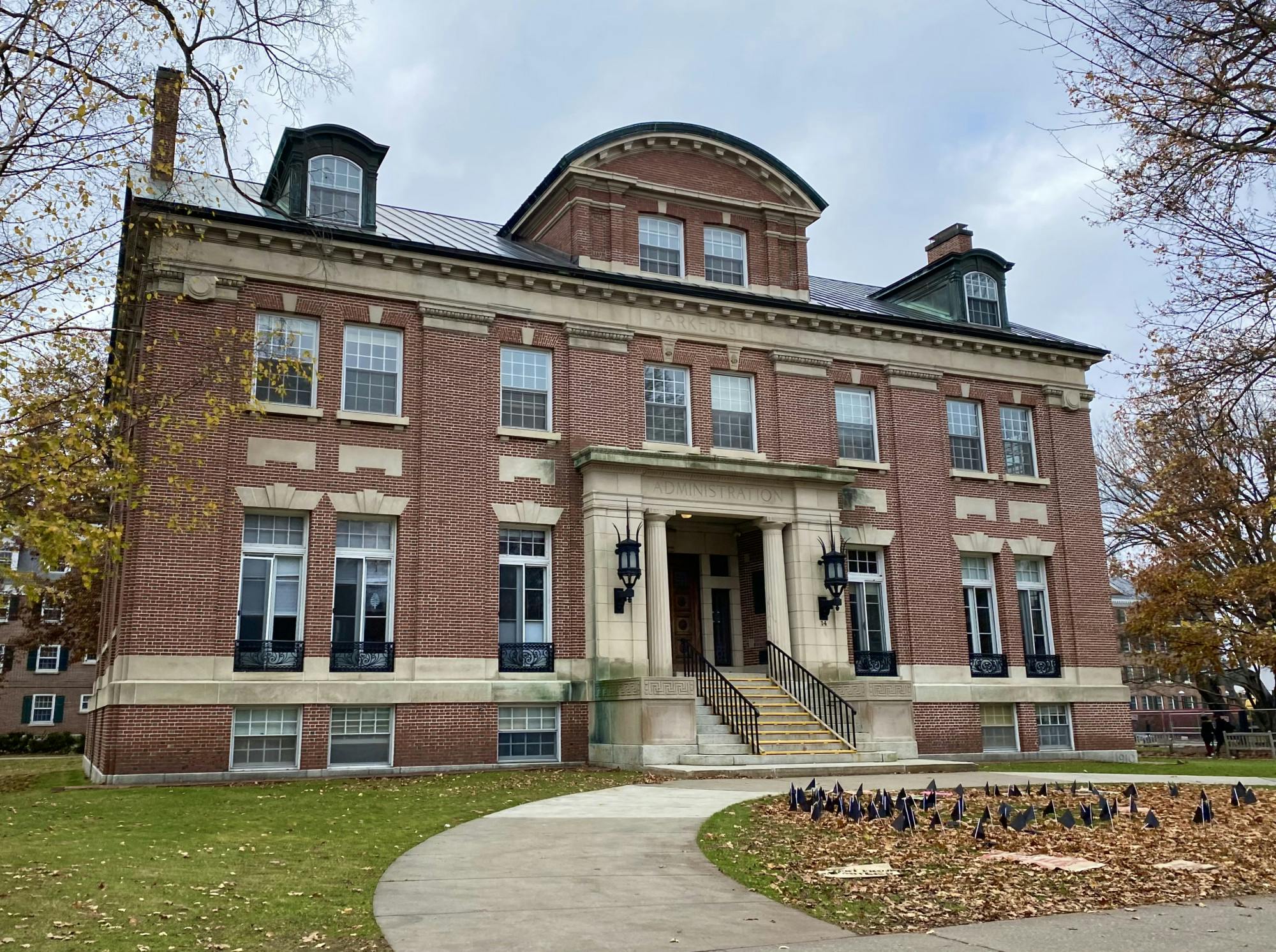In a campus-wide email sent on Jan. 10, College President Sian Leah Beilock announced a new initiative called Dartmouth Dialogues, which she described as the College’s “shared commitment to expanding programming dedicated to facilitating conversations and skills that bridge political and personal divides.” Working in collaboration with organizations such as the Rockefeller Center for Public Policy, the Dartmouth Political Union and the Student Wellness Center, Dartmouth Dialogues will attempt to consolidate and uplift pre-existing efforts to foster constructive dialogue and create “brave spaces” on campus, according to Assistant Vice President of Equity and Compliance Kristi Clemens.
Under the umbrella of Dartmouth Dialogues, Dean of Faculty Elizabeth Smith and Clemens will co-lead the Dialogue Project. According to the Dialogue Project website, the initiative has garnered over $3 million of support in private gifts from alumni and friends and will provide “intentional training in the development of essential collaborative dialogue skills.” According to Clemens, the project focuses on skill-building and aims to foster empathy, active listening and collective responsibility.
According to Smith, the Dialogue Project was initially conceptualized in 2019. Driven by a belief that “institutions of higher education should be at least the one place where dialogue should be able to happen,” Smith said she began to engage with faculty members about the idea. While the pandemic put a hold on the project, she continued to have conversations focused on how the College should approach difficult conversations. Smith added that Beilock recommended that she work with Clemens, who had previously written about brave spaces. In the months following, the project quickly took shape and now includes several sub-initiatives.
One of these sub-initiatives, called Middle East Dialogues, builds on the previous collaboration of the Middle Eastern Studies and Jewish Studies programs, which conducted joint forums during fall term in response to the start of the Israel-Hamas War.
“We all kind of understand that this has to continue and has to become part of what we do regularly,” Middle Eastern studies professor Ezzedine Fishere said.
Middle East Dialogues is a special topic series, a flexible part of the Dialogue Project that promotes conversation on “timely, challenging topics,” according to the project’s website.
The Dialogue Project aims to bring its core ideas into classroom curriculum and also provide workshops and guest speakers for faculty and students outside of the classroom. The first of the guest speakers is Marc Brackett, founding director of the Yale Center for Emotional Intelligence, who will speak at Dartmouth on Jan. 26.
According to Clemens, the project also includes a Dartmouth edition of One Small Step, a partnership with the non-profit organization StoryCorps, which facilitates dialogue between people with opposing political and personal viewpoints. According to their website, the purpose of these conversations is “not to debate politics, but to learn who we are as people.”
“It’s hard to hate up close,” Clemens said.
Smith expressed concern about the level of campus interest in the project and hopes that faculty and students will engage with it.
“Everyone is so busy, and [faculty and students] are making decisions about what things we’re going to engage in, and what we’re going to do,” she said, adding that she wanted the initiative to complement, not compete with, “a lot of other really terrific programming.”
According to Clemens, the Dialogue Project aims to continually assess the effectiveness of its initiatives, though she and Smith have yet to figure out how exactly to accomplish that.
“One workgroup within [our] steering committee is going to focus on assessment, and they will bring in the professionals,” she said. “I think we’ll assess individual programs as well as attitude shift over time.”
Clemens said that she believes in the initiative and that she hopes students four years from now show measurable change in their ability to participate in productive dialogue.
“We’ll see it in the classroom,” she predicted. “We’ll see it in the residence halls, we’ll see it in conflict management on campus.”
In regards to the future of the project, Smith discussed the possibility of offering incentives for students to engage in the project via the “credentialing” of dialogue skills.
“I think this would be a highly sought-after skill for employers from any sector,” Smith said. “We could build courses that are really focused on building dialogue skills. I know the Rockefeller Center offers these sorts of digital badges in some of their leadership programming, so you can imagine something like that in dialogue skills.”
For Smith, dialogue is something that requires repetition, and she aims to “infuse” the student experience with opportunities for students to practice their skills. To ensure this continued focus on constructive dialogue, the project could include a piece during New Student Orientation, a portion during sophomore summer and perhaps even a culminating experience in dialogue.
“It’s not like you go to a workshop, and you’re just fantastic at dialogue, and you can talk to anyone about anything,” Smith said. “[Dialogue] is something that needs to be practiced.”




